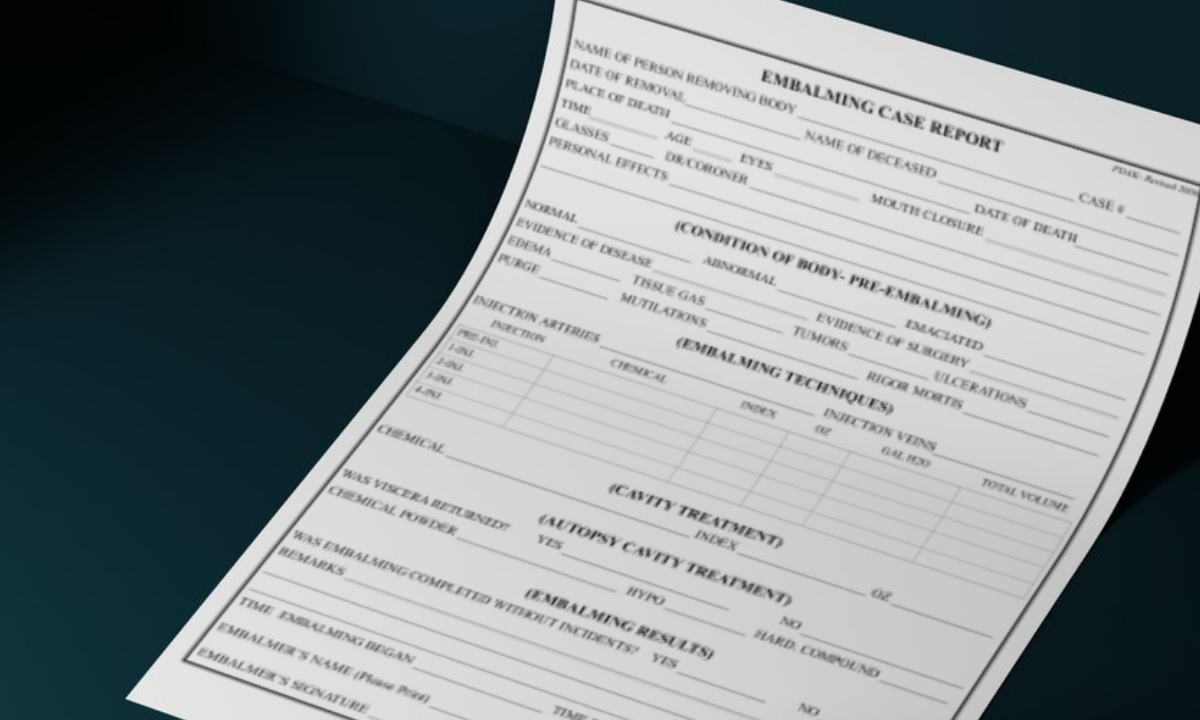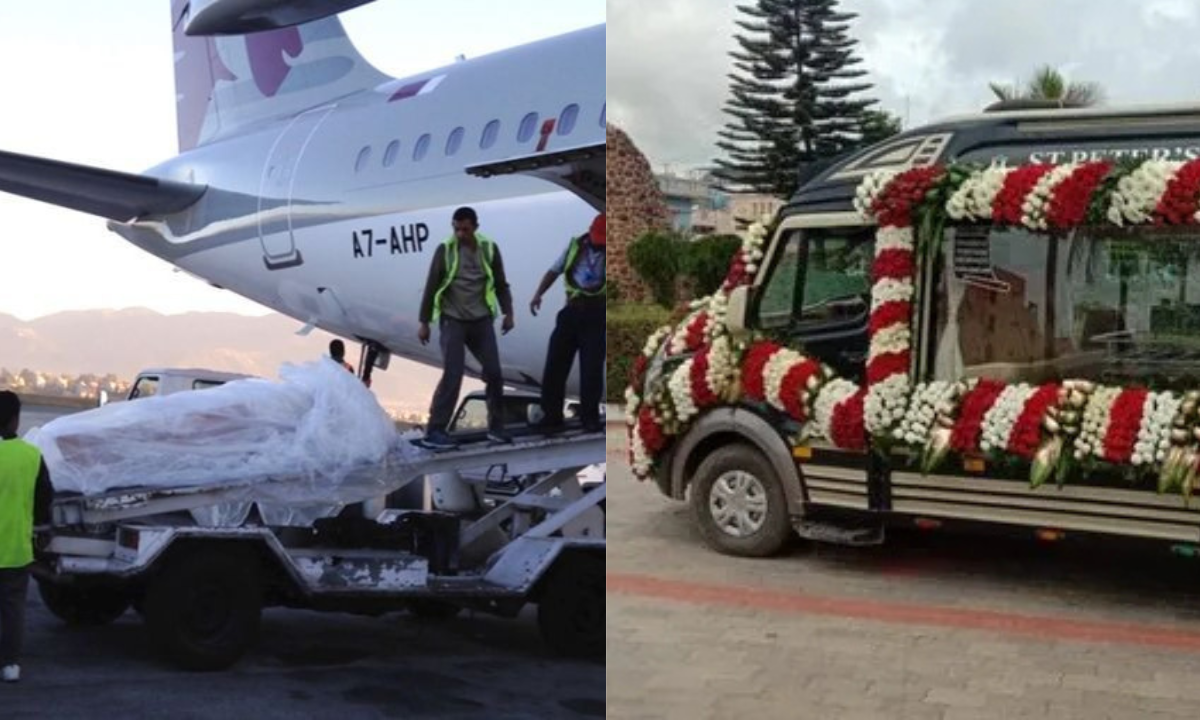Dead body transportation in India involves several considerations to ensure respect, legality, and efficiency. Whether you are in charge of the transportation yourself or simply coordinating with funeral services, understanding the main parts can help you deal with the process.
Understanding Legal Requirements

Of course, the transportation of a deceased body entails compliance with various legal provisions. There are multiple rules for dead body transportation in India and every state in India has its own rules.
Obtaining Necessary Documents
Before transporting a body, the first thing to do is have proper documentation, such as an invoice. Generally, you will need:
- Death Certificate: This is a formal document issued by a registered medical practitioner to certify the deceased’s death and indicate this to the transportation authorities.
- Embalming Certificate: If this does occur, embalming may be necessary, including up to six months of burial for longer distances. An embalming certificate guarantees that the body’s condition has been satisfactory enough to transport.
- Transit Permit: However, there will be instances when a transit permit will be required for a deceased body by the local authority. That’s particularly true when bodies are moving across state lines.
Mode of Transportation: What to Choose?
Dead body transportation in India can take a different mode depending upon dead body distance, urgency, and resources available.
Road Transportation
In most cases for shorter distances within city limits, road transportation is used.
- Hearse Vehicles: They’re specially designed vehicles to transport a body with respect. They maintain a dignified environment and take care that the body is safely dealt with.
- Private Vehicles: In some cases, families will take personal vehicles for transportation. This may seem convenient, but the body needs to be covered and treated to show respect to the deceased.
Air Transportation
Air transportation may be required if the body has to be transported over a long distance or to another state.
- Airlines Regulations: The rules will vary from airline to airline, so check your airline’s specific regulations before proceeding. There are specific guidelines that must be followed by most of the airlines in India.
- Coordination with Funeral Services: If you opt for a funeral service that deals with air transportation, it can help a lot as they usually know tips and tricks of what is required.
Preparation and Handling of the Body.
The preparation of the body is a very important part of the general dead body transportation in India.
Embalming and Preservation
Depending on the distance the body is to be transported and how long it is to be stored, embalming is often required in cases.
- Understanding Embalming: Preserving the body using chemicals means that when you use chemicals to prolong it, you prolong it as lifelike as possible, so they can see the body or move it.
- Choosing the Right Service: The embalming and transportation process is another step you can avoid if you choose to select a reputable funeral home.
Respectful Handling
Above all, we should handle the deceased body with respect.
- Covering the Body: Transporting the deceased with the use of a respectful covering such as a shroud to prevent the loss of dignity of the deceased.
- Secure Placement: Make sure that the body is placed in the vehicle so the body doesn’t move during transport.
Hindu Customs
For instance, Hindu families usually do a last rite that most times entails cremation. Usually, the body is transported on a wooden plank or carriage with flowers to the cremation site. However, be aware of what they are and respect them during transportation so that the family’s traditions are to be kept.
Other Religious Practices
There are specific customs of other religions also. For instance, in Islamic traditions, the body has to be buried shortly after. To perform these customs, the transportation process may be bypassed. Knowing these practices is essential when they will be transporting a dead body in India and to be able to provide the needed support to mournful families.
Mental Health Considerations
Moving a body can have serious emotional implications for family members and friends.
Support Structures
- Emotional Support: Some families are in distress and the need for emotional support. Helping them or connecting them with support groups can take something off their plate as they are around their grief.
- Professional Help: In some cases, mental health professionals who specialise in grief counseling may also be necessary. Families can draw on these professionals to get through this difficult time.
Communication
Transportation arrangement planning should be open, respectful communication. This can take some anxiety off the grieving family’s plate by giving them a feeling of being involved in the process.
How to Choose the Right Funeral Home
Choosing the right one is important if you decide to use a funeral home for dead body transportation in India.
Research and Reviews
- Reputation: Funeral homes with good industry reputations within the community should be looked for. Family and friend’s online reviews and recommendations or online reviews and recommendations can help you find a reliable service provider.
- Services Offered: Make sure the funeral home will perform all services, including transportation, embalming, and handling of necessary paperwork from your lawyer.
Initial Consultation
- Discuss Needs: Where the funeral service provides your locality or you an initial consultation with them, they can deliver you with respect for services such as transportation of dead bodies in India.
- Cost Transparency: Families should ask about all costs upfront so they can plan their finances better; and avoid any unexpected charges.
Final Thoughts
Moving a body across Indian cities is a crucial exercise that involves attentiveness to legality, sensitivity, and respect. India should always take into consideration family wishes, cultural practices, and emotional needs when transporting a dead body. Coordination must exist between families, funeral homes, and legal authorities to make sure it goes smoothly and respectfully. If you know the above, you can assist grieving families by making this extremely tough time a little more manageable.
Nobody would like to be in a situation where it is needed to take care of the transportation of a deceased person, however, knowing and preparing adequately will ease the job so much. These arrangements don’t only pay respect to the past, but they also help those family members left behind to deal with their pain, sadness, and grief. In every step taken for dead body transportation in India, compassion and understanding must be in the lead.
Kaashimukthi is a one-stop place for comprehensive funeral services in India that offers compassionate support and expertise to families on arranging final rites with dignity and respect.

Madhu is an Entrepreneur, a Mentor, a Writer and an Aspiring Car Race Driver. He is Deeply passionate about leveraging Technology and Human Centred Design to make complex care and End of Life Planning easier. With the ultimate aim of Improving the quality of Life in the Twilight years. Madhu is highly educated and Alumni of IIM-Bangalore, Sikkim Manipal University and Bangalore University besides a Rich Industry Experience in the field of Product Management, Design, Supply chain, Finance, Commercial Management and Funeral Services.

